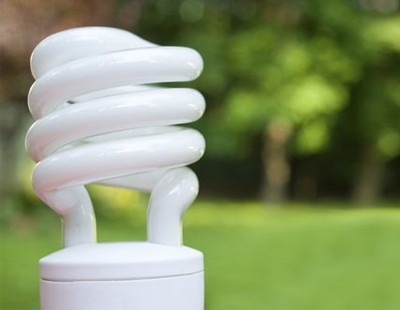In the UK, there are over 3.9 million homes situated in off-grid areas with no access to mains gas, so it’s likely that rural estate agents will come across properties that rely on alternative fuel options – such as oil, electricity, solid fuel and liquefied petroleum gas (LPG) - for heating and hot water.
For prospective buyers, homes such as these can seem less desirable – if they have previously used mains gas, they may not understand how these alternative systems work, or how much they cost to run or maintain. They may also be worried about fuel security, as heating oil is one of the items commonly targeted by thieves.
With this in mind, it’s important that estate agents have sound knowledge about the different types of off-grid fuel systems available, the pros and cons of each, and be able to effectively advise potential buyers.
Here’s a run-down of the different options...
Oil
Oil is used in ‘wet’ heating systems that involve an oil-fired boiler, heating water to offer central heating via radiators, and hot water through taps. Oil is efficient and modern condensing oil boilers now achieve efficiencies of 90% and more. The oil is delivered by road and stored in an external tank.
Some find a large oil tank to be detrimental to the overall aesthetics of a house and a turn-off for many potential buyers. The environmental impact of oil can also be a concern as the owner of an oil tank is responsible for any leakages, whether the result of poor installation, insufficient maintenance or vandalism.
Should an oil spillage occur, the local authority could declare the ground contaminated under the Environmental Protection Act, with the possibility of significant fines. Oil tanks can also be easily siphoned, which poses a security risk.
The price of oil can fluctuate too, meaning there are no guarantees how much it will cost each time the tank is refilled.
Solid fuel
A solid fuel option such as a coal or wood-burning stove can be aesthetically desirable, but it does come with a few downsides. It can be impractical to store the wood or coal, and the soot caused by burning the fuel can be messy.
The home may also be heated unevenly, so some rooms may need additional heat from an electric heater. An immersion tank will also be required for hot water.
Electricity
Electric boilers are available for homes relying on electricity as a fuel for heating and hot water. The alternative is to use electric storage heaters, which are more cost effective than electric boilers, and they are much cheaper to install and maintain.
One of the cons is that you do not get the same level of control over your heating in comparison to using a central heating system. On average, it’s also 2-3 times more expensive to heat a home using electricity than oil, LPG and solid fuel.
LPG
LPG is just like mains gas and is a desirable option for homeowners living without access to the mains get network. It can be used for heating and hot water, gas fires, gas cooking and some household appliances, such as tumble dryers. LPG is also an efficient fuel and modern condensing LPG boilers achieve efficiencies of 90 per cent and more.
Many LPG companies own storage tanks, and for a small monthly charge, insure, maintain and even replace the tank free of charge if required.
Some tanks also have automatic top-up technology that monitors the gas levels and alerts the supplier when a delivery is required, so there’s no need for the homeowner to check fuel levels or re-order.
Plus, a gas tank can be hidden underground which is more aesthetically pleasing for potential buyers. For smaller properties or those short of outside space, cylinders are available too.
LPG is virtually impossible to steal, as it would require specialist equipment to extract the gas from the tank. It also burns cleanly with virtually no soot, making it one of the greenest off-grid fuel choices, emitting around 20% less CO2 per kWh than heating oil, according to Atlantic Consulting.
Many LPG suppliers also offer fixed rates for certain periods, which is a plus for potential buyers looking to keep in-control of their heating costs.
*Gregor Dalgleish is national sales manager at Calor


















%20A%20property%20tale%20for%20our%20times.png)







Join the conversation
Be the first to comment (please use the comment box below)
Please login to comment